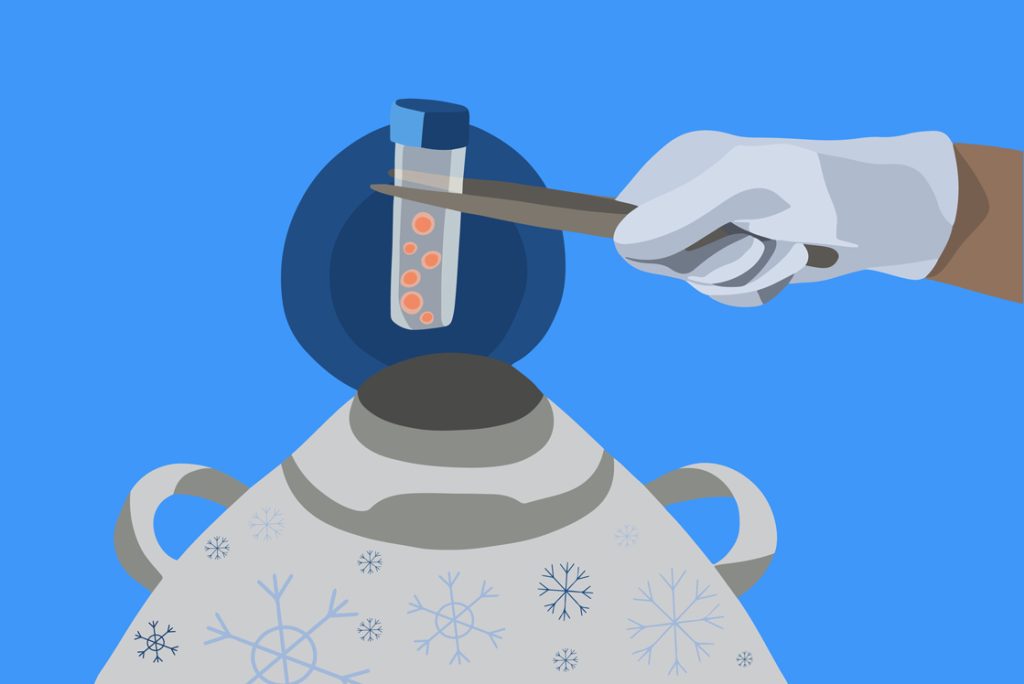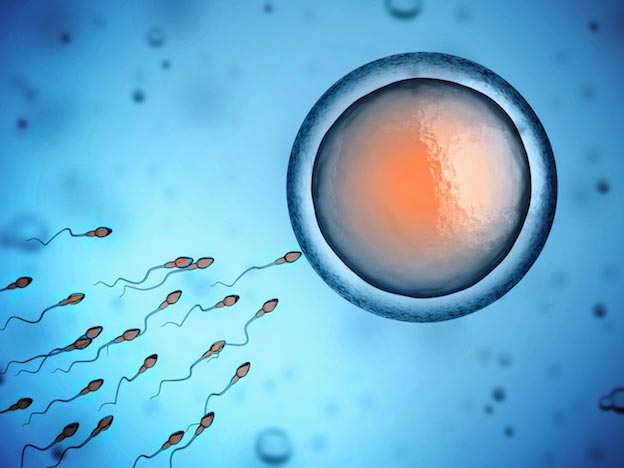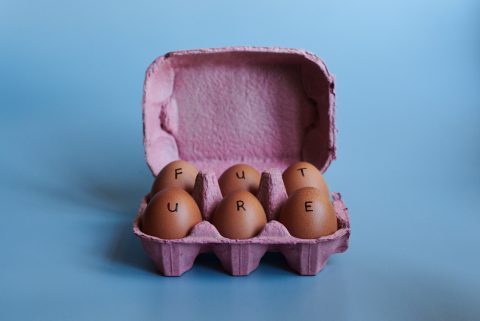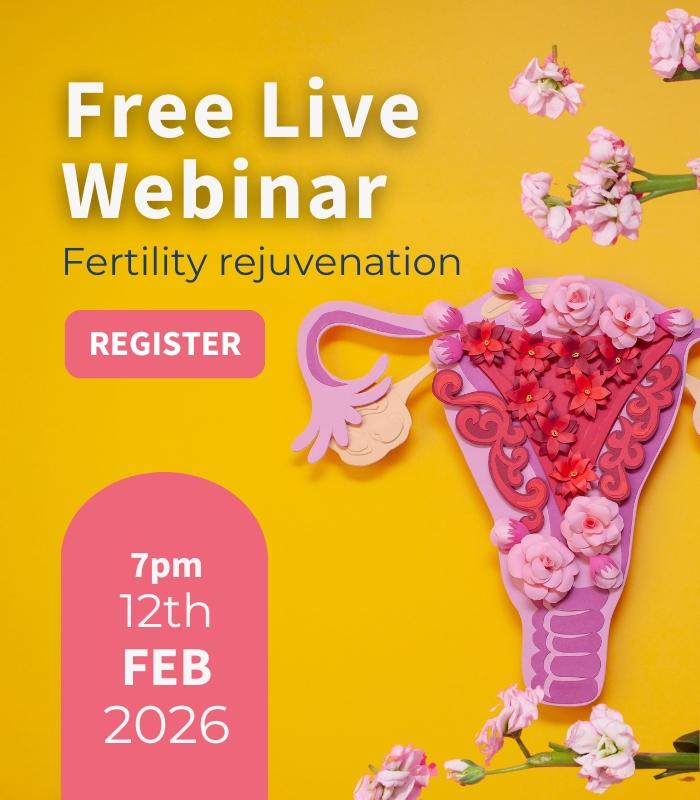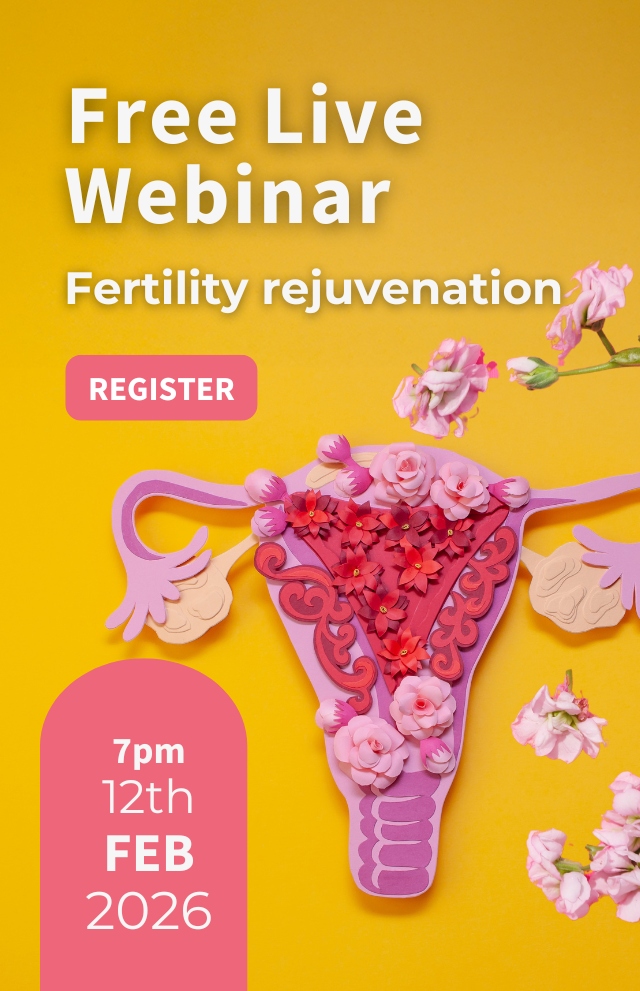If you’re not ready to have children yet, you may be thinking about egg freezing.
As women get older, both the quality and quantity of their eggs (and chances of getting pregnant) begin to dwindle. This worsens in the mid-thirties and becomes particularly apparent after the age of forty. Of course the rate of this decline differs from woman to woman according to influences such as lifestyle, environment and genetics, but every woman experiences it, and age is the number one cause of falling fertility. Therefore, using higher quality frozen eggs, harvested when you are younger, can offer a better chance of success than fresh eggs when trying for a baby later in life.
If you are wondering about frozen eggs, you may have questions about possible risks and side effects from the procedure. You will want to know what egg freezing involves and may be asking: does egg freezing affect fertility? Read on and we’ll explain.
What does egg freezing involve?
The process for frozen eggs is the same as the first part of an IVF cycle. At a good fertility clinic, you should be thoroughly assessed to ensure you are a suitable candidate for egg freezing. Assuming that’s the case, you will be given hormone medicines to encourage your ovaries to create more eggs.
In a natural ovulation cycle, your ovaries will usually produce one egg. But fertility researchers anticipate that a woman less than 35 years old with a normal ovarian reserve may have an 80-90% chance of a life birth in the future if she banks 20 frozen eggs; a 50-60% chance of having two babies and a 10-20% chance of three babies. Some women will only need one egg retrieval cycle; others may require more. In order to give you the best chance of success, we give you one type of medication to encourage egg production and another to stop your body from ovulating before we collect the eggs. Fertility doctors call this ‘controlled ovarian stimulation’. A good fertility clinic will assess you meticulously throughout, with blood testing and scans, tweaking the doses as necessary to make sure your ovaries are responding well. After about 10-12 days of this, you will be given one last ‘trigger’ injection to mature the eggs, and 36 hours after that, the eggs will be collected under sedation. Your embryologist will assess the eggs and only the mature eggs will be frozen. They’ll then be kept safe in storage for use in later fertility treatment, if you require them.
There have been enormous advances in freezing technology in recent years. Some fertility clinics still employ slow-freezing technology, but here at The Fertility and Gynaecology Academy we utilise the most up to date ‘flash-freezing’ vitrification equipment to freeze the eggs within 5-10 minutes. We use this vitrification method because it massively lowers the chance of egg cell damage, which can occur when freezing takes hours.
If you need your frozen eggs in future, they will be carefully thawed. The embryologist will inject them with sperm in the lab to create embryos, before they are placed into your uterus to grow and develop, in a process named ICSI.
Why are frozen eggs becoming more popular?
Since female fertility declines with age, frozen eggs are becoming an increasingly popular ‘insurance policy’ for busy women who need a bit more time – perhaps time to find the right partner, establish themselves in their career, or build up more financial resources to welcome in a child.
Does egg freezing affect fertility?
A lot of women considering frozen eggs ask: Will freezing my eggs lower my ovarian reserve? Does freezing eggs affect fertility?
The good news is: No, freezing eggs does not affect fertility. Opting for frozen eggs won’t decrease your ovarian reserve or compromise your chances of getting pregnant naturally.
A quick run-through of the ovulation process explains why. Every month during your menstrual cycle, usually only one egg survives the ovulatory journey. An egg follicle (the little fluid-filled sac that is home to an immature egg) is triggered and the egg develops, before being released from the ovary and journeying along the fallopian tubes. However, on top of that one egg that is ovulated, several follicles are activated but don’t fully mature, at which point they just die off in a process called ‘atresia’.
Dr Amin Gorgy, an expert fertility doctor and co-director of The Fertility and Gynaecology Academy says: “The process of egg freezing simply salvages some of those eggs that would be lost otherwise. This is because the hormone medicine prescribed for the frozen eggs process causes your ovaries to make multiple mature eggs in a cycle instead of just the one. These salvaged eggs are then frozen, to be used when and if you need them in the future.”
So egg freezing doesn’t further deplete your ovarian reserve and there’s no reason the process should compromise a woman’s chances of conceiving naturally later. Frozen eggs are simply regarded as a back-up option, if you run into any problems with conception when you are actually ready to have children in the future.
Frozen eggs: Are there any risks to the baby?
There is no evidence of a rise in chromosomal abnormalities, birth defects or developmental problems in children conceived using frozen eggs. In fact, conception with higher quality frozen eggs that are retrieved when you’re younger can decrease the hazards of older motherhood – such as miscarriage and genetic and chromosomal defects.
In fact, today a woman aged 40 or older has markedly better odds of enjoying a healthy pregnancy using frozen eggs that were retrieved when she was in her mid-30s than trying with her fresh eggs over 40 years old.
Are there any side effects from the egg freezing process?
Every medical procedure carries some possible side effects – no exceptions. With the egg freezing process you may experience some side effects from the hormone medication similar to PMT such as tiredness, mood swings, and breast sensitivity. You may also experience soreness or redness at the site of your injections.
You may experience some vaginal discomfort after the egg retrieval, but this should pass quickly and be controllable with mild painkillers like paracetamol. Most women can return to work the day after egg retrieval.
In rare cases, the ovaries can become hyper-stimulated by the hormone medications (this is called ‘ovarian hyperstimulation syndrome’) and in such cases women may require bed rest or medical treatment. But a good fertility clinic will guard against that rarity by scrupulously monitoring your response to the medicines and ensuring you are on the right dose.
Expert egg freezing in London
Here at The Fertility and Gynaecology Academy, we offer expert egg freezing in central London. Our clinic hosts experienced fertility doctors and the most up-to-date technology.
To find out more, call The Fertility & Gynaecology Academy now on 020 7224 1880 or email info@fertility-academy.co.uk.



